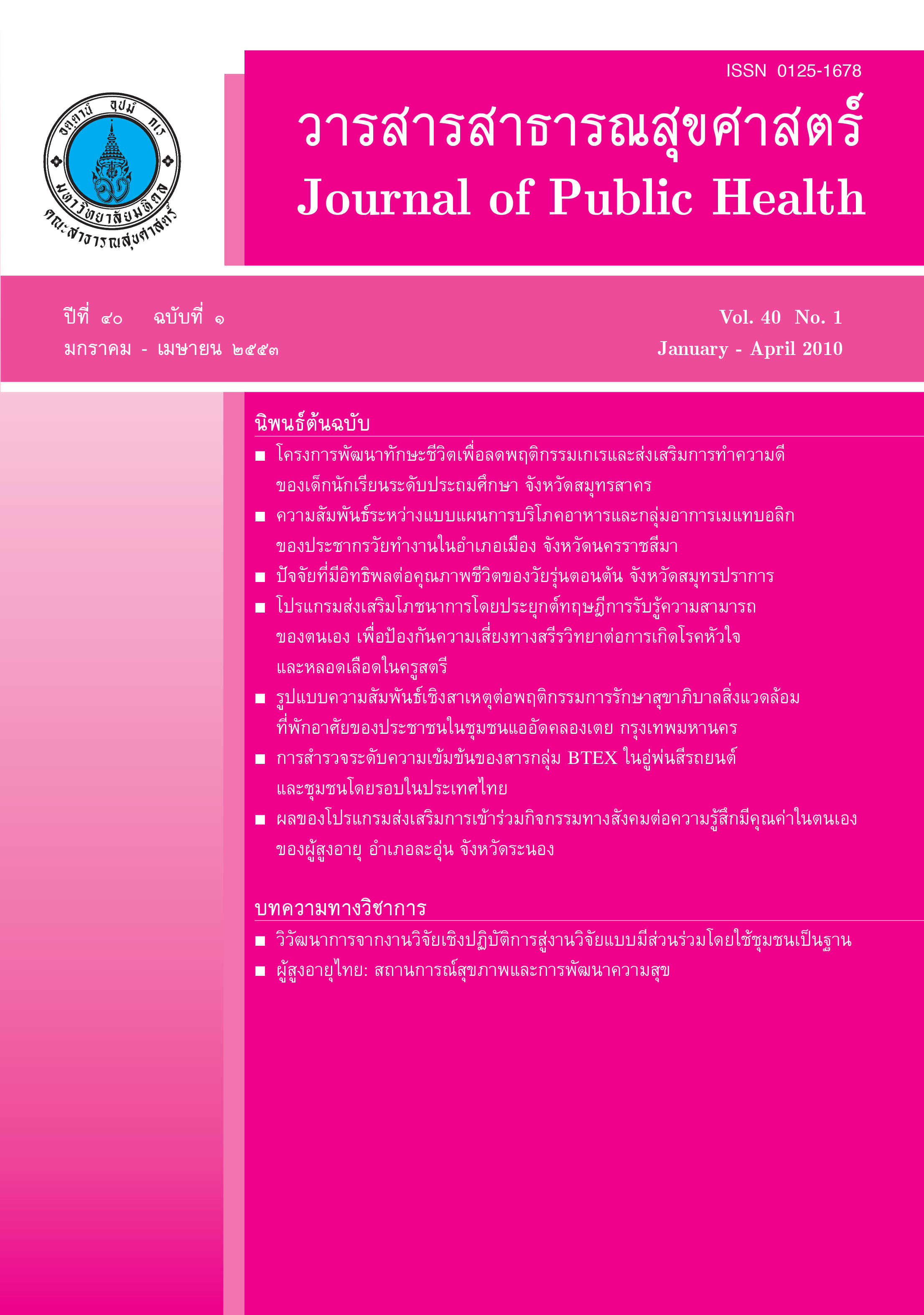Life Skills Development Program to Reduce Bullying and to Promote Good Practices among Primary School Students, Samut-Sakorn Province, Thailand
Keywords:
Life Skills, bully behaviors, good practices, primary school students, ทักษะชีวิต, พฤติกรรมเกเร, การทำความดี, นักเรียนระดับประถมศึกษาAbstract
ABSTRACT
The objectives of this study were to increase the mean scores of life skills component, to reduce bully behaviors and to increase good practices after the implementation of life skills development program in primary school children. A participatory action research (PAR) was applied among teachers and students of primary extending to secondary schools in Samut-Sakorn Province. Forty one students of grade six in the 1st School and twenty one students of grade one in 2nd school participated. The program for the 1st school consists of 10 components of life skills while in the 2nd school consists of 2 components. The program was implemented during October 2005 to May 2006. Self-administered questionnaire was used for program evaluation before and after program implementation. Statistical analysis was performed by frequency, percentage, mean, standard deviation and independent t-test. Among students in the 1st school, average scores of all 10 components of life skills were increased but only 3 components including family relationship, problem solving skill and communication skill were statistical significantly increased. While among students in the 2nd school, average scores of 2 components including self-awareness and coping with emotion skill were statistical significantly increased. The students and teachers in both schools agreed on the appropriateness and benefits of the program and it’s necessity to be continued. Both students and parents reported that students reduced bully behaviors and increased their good practices. As the result of this study suggest that school is a suitable place to conduct a life skill learning process to reduce bully behaviors and to increase good practices among primary school students.
Key words: Life Skills, bully behaviors, good practices, primary school students
Downloads
Issue
Section
License
Creative Commons License CC-BY-ND


